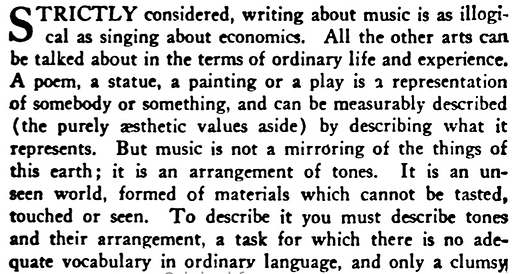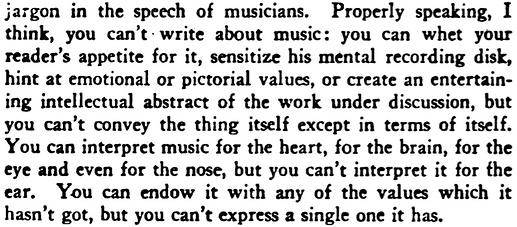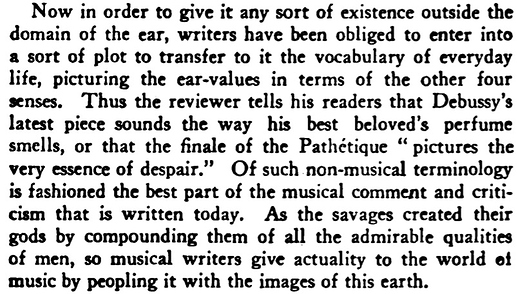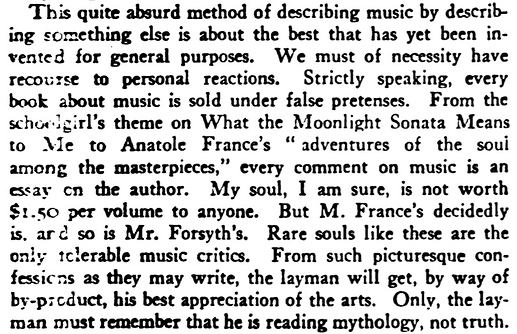Back in 1918, H.K.M. kicked off his review in The New Republic of the multi-volume The Art of Music with a caveat that would go on to develop a life of its own:
(The whole article is worth reading.)
That first sentence, in particular, has been riffed on countless times since, almost always mis-attributed. It’s funny and catchy. The most common version, today, is “writing about music is like dancing about architecture,” traceable to Martin Mull in the late 1970s.
Of course, you can write about music, and you can most certainly dance about architecture—both figuratively and literally—and many remarkable words have been written about music, even if they’re a mere drop in a bucket of blather. (For one example of remarkable music writing, I always recommend Stomp and Swerve: American Music Gets Hot, 1843–1924, which our own @Splificator wrote before he pivoted to American drinks. In addition to being a fun read, it adds cultural context to drinks history.)
It seems to me that spirits writing and music criticism face similar challenges. H. K. M. goes on to memorably describe the writer’s task:
and finally concluding:
Thank goodness we have a handful of ‘rare souls’ in spirits writing, several of whom we are delighted to have on hand here at S&C! Speaking of which, don’t miss this delightful new piece from Wayne Curtis:



